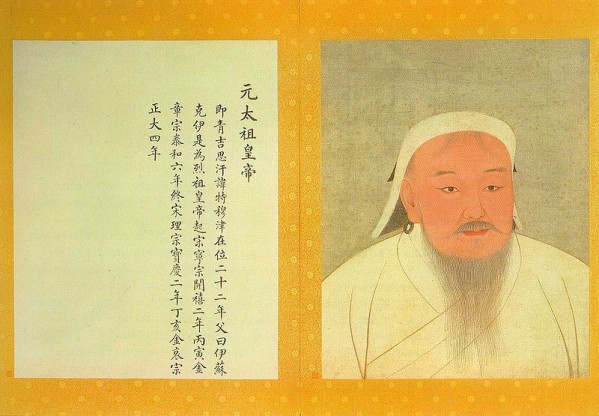Yesterday, we examined John Keegan’s question, Does war-making define the state? Phrased differently, can a state exist without war? Today, we ask a different question, can war exist without the state? If a state cannot exist without war and war cannot exist without state, then we find ourselves pondering military history’s chicken-or-egg question. Meaning, did our ancestors use war to establish a state or did war come about because our ancestors established states?
Keegan uses the example of the horse peoples from the Steppe that arrived on the historical scene in the form of chariot warriors during the Bronze Age, the Huns during the Roman Empire, and the Mongols during the late thirteenth- and early fourteenth-centuries. ((John Keegan, War and Our Word (New York: Vintage Books, 1998), 36-38.)) While these nomadic warriors tended to adopt the administrative systems they conquered, they started out in bands, not states. Their armies and wars existed, at least for a time, without a state.
Image of Genghis Khan from the fourteenth-century

The prime modern example is al-Qaeda. While officially classified as a “terrorist organization,” it is a stateless army. Even prior to the U.S. invasion of Afghanistan, al-Qaeda was stateless. They were allowed to exist and operate freely, but they were not the rulers of the state. As such, when the Taliban government fell in Afghanistan and a new republic rose in its place, al-Qaeda continued to exist. There are of course many differences between al-Qaeda and state-funded armies, the latter of which most people associate with the term “army.” However, there can be no argument that al-Qaeda is waging war without a state.
The differences between al-Qaeda and the nomadic Steppe peoples are obviously numerous. The latter conquered and settled down to form new states while al-Qaeda remains stateless. In addition, al-Qaeda wages its war against other states while a group such as the Mongols fought other bands initially, not states, during the rise of Genghis Khan (r. 1206-1227). By the time he invaded China, Genghis had formed a confederation of sorts. Although lacking many of the agricultural components we associate with states, the group had a complex form of government to organize its invasions, making it difficult to continue to classify them as a band. After conquering portions of China, the Mongols benefitted from the administrations of the new lands, giving them agricultural, government, and infrastructure.
Back to the original question, can war exist without a state? The nomadic Steppes peoples have demonstrated that a stateless army could wage war against other stateless armies. Prior to the Hun and Mongol invasions, these wars likely occurred continuously on the Steppe, but we lack any written historical record. Our modern example, al-Qaeda, demonstrates that a stateless army can wage war against states.
None of this, however, answers whether or ancestors formed states because of wars, or started wars because of states. That is a question for a future article.
